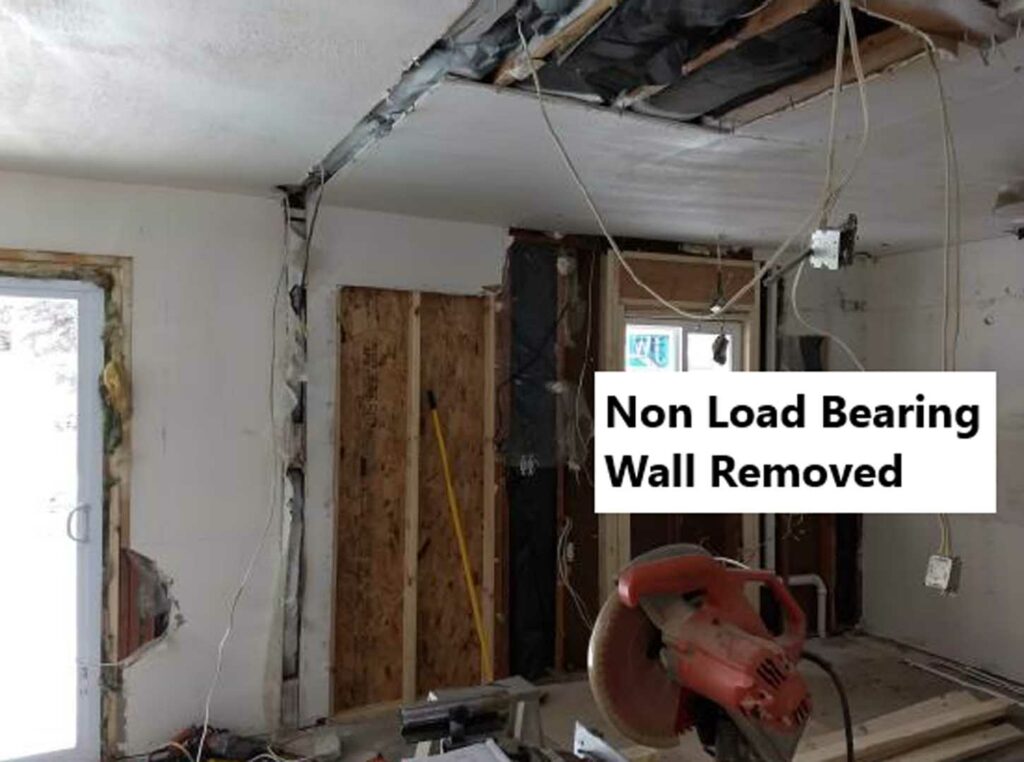Engineered roof truss systems may be designed to eliminate the need for load bearing walls or change where the bearing walls are located.
Roof support methods with load bearing wall removed.
The bottom wall plates were trapped between decades of flooring layers and had to be pried out of place.
Planning is key as it ll help you determine how much of a load bearing wall can easily be removed.
There are two ways to accomplish this.
Support a joist mid span.
After all in most homes you can remove as much as you wish of a load bearing wall but it has a lot to do with what s inside the wall and how you plan to redistribute the weight.
When you remove a load bearing wall you have to add a beam to carry the weight the wall supported see figure a with accompanying details in additional information below.
A load bearing wall carries weight from floors and or roof above while a partition wall merely separates two rooms.
When you remove a load bearing wall you need to create a temporary support to bear the weight of the ceiling before removing the wall which will remain until the beam is fully in place.
Joists will terminate directly above wall.
This is the easiest method because you don t have to cut into the joists or other framing above the beam.
Doors and windows rubbing or sticking.
Create a support system.
Bearing point is required because span is too long.
However there are two basic ways to offer support to your house or other structure after the load bearing walls has been removed.
A horizontal structural beam of sufficient structural quality must replace the wall.
Use a beam with vertical posts sometimes called columns.
For example a gable end truss may be designed with support members that transmit the roof weight load outward to the side walls allowing the end wall directly below it to have breaks or openings in it that would otherwise be impossible.
Other than the two ends the beam has no vertical bearing points.
There are several options with terms like simply supported fixed overhanging double overhanging continuous cantilever or trussed.
Basically a load bearing wall will do one of the following.
You also have to support the ends of the beam with posts that carry the load to the foundation.
Support the ends of joists.
They could also change direction at that point but it s the same concept.
A horizontal beam that has one or more intermediate posts between the two end bearing points is also an acceptable replacement.
With the studs removed we pulled down the framing wall plates which were nailed into the ceiling joists.
If a load bearing wall has been removed on the first floor without proper support installed for the load above it.
Let s guess in your situation north to south.
When you or a contractor remove a load bearing wall it must be replaced with either.




























